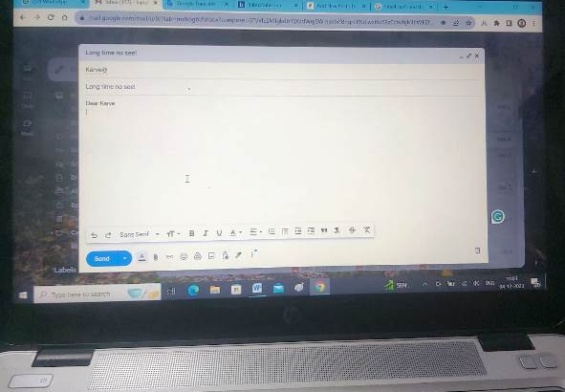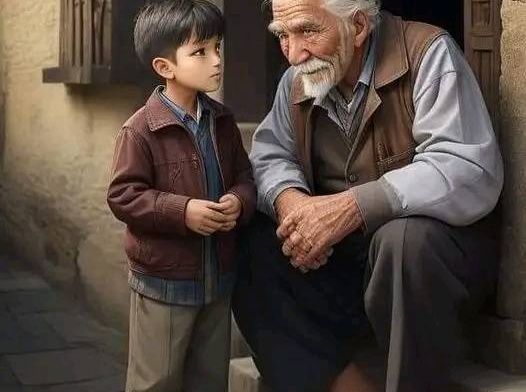Brief facts about Article 370, what actually it is! But, it is a tough track for Modi-led BJP & J&K Government
In an Open Letter to Narendera Modi by Babushahi.com Correspondent under Nazaria column clearly stated that “It must formulate and enforce the Uniform Civil Code so that all citizens are treated as equal and particularly, the Muslim women do not suffer from gender discrimination. It must do everything in its power to abrogate article 370 of the Constitution so that J&K is treated at par with other states and brought into the mainstream of national life”.
At the end of the letter, it was also suggested that – “Being in full majority, there could now be no excuse for not taking any decisions in the interest of nation which BJP as in the opposition had been raising.”
The issue of Article-370 cropped up in a day itself as Jitendra Singh, Minister of State in PMO publicly advocated for a debate. Interestingly he didn’t talk on abrogation of the Article- 370. He asked for a debate only and interestingly although it appeared to be a controversy, but the debate started.
Brief facts about Article 370, what actually it is…
According to the Constitution of India, Article 370 provides temporary provisions to the state of Jammu and Kashmir, granting it special autonomy. The article says that the provisions of Article 238, which was omitted from the Constitution in 1956 when Indian states were reorganized, shall not apply to the state of Jammu and Kashmir. Dr BR Ambedkar, the principal drafter of the Indian Constitution, had refused to draft Article 370. In 1949, the then Prime Minister Jawaharlal Nehru had directed Kashmiri leader Sheikh Abdullah to consult Ambedkar (then law minister) to prepare the draft of a suitable article to be included in the Constitution.
According to the Constitution of India, Article 370 provides temporary provisions to the state of Jammu and Kashmir, granting it special autonomy. The article says that the provisions of Article 238, which was omitted from the Constitution in 1956 when Indian states were reorganized, shall not apply to the state of Jammu and Kashmir. Dr BR Ambedkar, the principal drafter of the Indian Constitution, had refused to draft Article 370. In 1949, the then Prime Minister Jawaharlal Nehru had directed Kashmiri leader Sheikh Abdullah to consult Ambedkar (then law minister) to prepare the draft of a suitable article to be included in the Constitution.
Article 370 was eventually drafted by Gopalaswami Ayyangar. Ayyangar was a minister without portfolio in the first Union Cabinet of India. He was also a former Diwan to Maharajah Hari Singh of Jammu and Kashmir. Article 370 is drafted in Amendment of the Constitution section, in Part XXI, under Temporary and Transitional Provisions.
The original draft explained “the Government of the State means the person for the time being recognized by the President as the Maharaja of Jammu and Kashmir acting on the advice of the Council of Ministers for the time being in office under the Maharaja’s Proclamation dated the fifth day of March, 1948.” On November 15, 1952, it was changed to “the Government of the State means the person for the time being recognized by the President on the recommendation of the Legislative Assembly of the State as the Sadr-i-Riyasat (now Governor) of Jammu and Kashmir, acting on the advice of the Council of Ministers of the State for the time being in office.”
The original draft explained “the Government of the State means the person for the time being recognized by the President as the Maharaja of Jammu and Kashmir acting on the advice of the Council of Ministers for the time being in office under the Maharaja’s Proclamation dated the fifth day of March, 1948.” On November 15, 1952, it was changed to “the Government of the State means the person for the time being recognized by the President on the recommendation of the Legislative Assembly of the State as the Sadr-i-Riyasat (now Governor) of Jammu and Kashmir, acting on the advice of the Council of Ministers of the State for the time being in office.”
Under Article 370 the Indian Parliament cannot increase or reduce the borders of the state.
Article 370 was and is about providing space, in matters of governance, to the people of a State who felt deeply vulnerable about their identity and insecure about the future.
It was about empowering people, making people feel that they belong, and about increasing the accountability of public institutions and services. Article 370 is synonymous with decentralisation and devolution of power, phrases that have been on the charter of virtually every political party in India.
Article 370 was and is about providing space, in matters of governance, to the people of a State who felt deeply vulnerable about their identity and insecure about the future.
It was about empowering people, making people feel that they belong, and about increasing the accountability of public institutions and services. Article 370 is synonymous with decentralisation and devolution of power, phrases that have been on the charter of virtually every political party in India.
On the very first day of the newly formed Modi-led NDA government at the Centre, the Article 370 has become the talk of the House.
Different statements have started coming from different political leaders. Congress has clearly come forward that talk of Art 370 is a political stunt. While J&K Minister, Ali Mohd Sagar has said, we have always defended Article 370… for which our people have gone to jails, we have fought for it, so it is not be said (what we will do) but you can understand NC’s position (if it is repealed). On the other hand J&K Congress Chief Saifuddin Soz is of the view that those seeking a debate on Article 370 are making a mistake. This Article is integral to the Constitution of India. It can neither be amended nor abrogated by any authority in India unless the people of J&K themselves want it. At the same time, Senior BJP leader and Union Minister for Transport and Shipping Nitin Gadkari has said, Article 370 had impeded the development of J&K. The development of J&K could not take off due to Artcle 370. There is a tremendous scope for development of the state and a number of possibilities for tourism exist. Hence, the new government is keen to develop the state in a better way.
The BJP led government’s move to scrap the Article 370 has wider connotations and ramifications and is divisive, radical and regressive while warning that repealing the article is the most dangerous move having likely potential of hitting the very integrity of the country.
What previous government has done to curb terrorism across the border is not the subject to be discussed now. The more important is as to what action should now be initiated for simplifying relations with a neighboring nation. The situation is quite different now as BJP while in opposition has been opposing the Article 370 and if it don’t initiate after formation of its government in majority, it lands itself in a very awkward position. It has now to look new alternatives and renewed outcomes.
The BJP led government’s move to scrap the Article 370 has wider connotations and ramifications and is divisive, radical and regressive while warning that repealing the article is the most dangerous move having likely potential of hitting the very integrity of the country.
What previous government has done to curb terrorism across the border is not the subject to be discussed now. The more important is as to what action should now be initiated for simplifying relations with a neighboring nation. The situation is quite different now as BJP while in opposition has been opposing the Article 370 and if it don’t initiate after formation of its government in majority, it lands itself in a very awkward position. It has now to look new alternatives and renewed outcomes.
We can say that inviting Pakistan PM on the occasion of swearing-in ceremony was quite symbolic to start dialogue to end terrorism by sharing its expectations. On the other hand, Pakistan too wants cordial relations with India and this was perhaps the best time to reap enhanced consequences.
At the same time, India need to learn from the past experiences that silence cannot serve any purpose. When you want the circumstances to progress, actions are compulsory. India has to take a stand if it wants to maintain cordial and peaceful relations with Pakistan.
It was astonishing to hear the comments of the political leaders especially the J&K CM, wherein he has warned the BJP to either forget the revocation of Section 370 or J & K as the part of India. Is not a dictatorial statement in the democratic country?
It was astonishing to hear the comments of the political leaders especially the J&K CM, wherein he has warned the BJP to either forget the revocation of Section 370 or J & K as the part of India. Is not a dictatorial statement in the democratic country?
Frankly speaking, the continuance of Article370 must be reviewed for the betterment of the state and people therein. The track of Article 370 is tough for Modi-led BJP government and J&K but the people of India have high expectations from capable leader to prevail upon the concerns.





